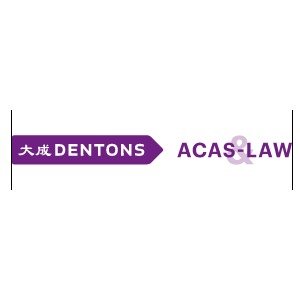Best Transportation Lawyers in Abuja
Share your needs with us, get contacted by law firms.
Free. Takes 2 min.
List of the best lawyers in Abuja, Nigeria
About Transportation Law in Abuja, Nigeria
Transportation law in Abuja, Nigeria is a comprehensive body of regulations governing all activities related to transport within the city. It encompasses road traffic laws, regulations regarding cargo transportation, public transit rules, vehicle licensing laws, and regulations concerning shipping and air transport. The aim of these laws is to ensure safety, efficiency, and sustainability in the transportation of goods and individuals.
Why You May Need a Lawyer
The services of a lawyer might be needed if you are involved in a transportation dispute, accident claims, regulatory compliance issues, acquisition, or transfer of transport licenses among others. For instance, if you are a transport business owner in Abuja, a lawyer can assist in ensuring your operations are in compliance with local laws. This could range from ensuring the correct licenses are obtained to dealing with employee disputes or managing potential liability claims resulting from accidents.
Local Laws Overview
The key aspects of local laws relevant to transportation in Abuja include the Road Traffic Act, the National Road Transport Facilitation Act, and regulations set forth by the Federal Road Safety Corps. Some of these laws pertain to vehicle registration, driver licensing, roadworthiness of vehicles, importation of vehicles, road infrastructure maintenance, speed limits, traffic signs and rules, as well as penalties for violation of these laws.
Frequently Asked Questions
What are the regulations concerning public transportation in Abuja?
Public transportation in Abuja is regulated by the Federal Capital Territory Administration. All commercial vehicles must be registered, and drivers must have valid licenses. Additionally, rules concerning operation hours, routes, and fares are also in place and must be adhered to.
What should I do in case of a road accident in Abuja?
In case of a road accident in Abuja, the first step is to ensure safety, get medical attention if needed, and report the incident to the police. Subsequently, you may need a lawyer to guide through the claims process or if legal issues arise from the incident.
Do I need a permit to operate a transport business in Abuja?
Yes, a permit is required before you can operate a transport business within Abuja. This includes bus services, taxi services, and cargo transport services.
What are the penalties for violating transportation laws?
Penalties for violating transportation laws in Abuja can range from fines to seizure of vehicles and possible imprisonment, depending on the nature and severity of the violation.
Who enforces transportation laws in Abuja?
The Federal Road Safety Corps is the primary enforcement agency for transportation laws in Abuja. However, the Nigerian Police Force also plays a role in enforcement especially in cases of road accidents and criminal activities linked to transportation.
Additional Resources
For further assistance and resources related to transportation law in Abuja, consider referring to the Federal Ministry of Transportation, the Nigerian Association of Road Transport Owners, and the Federal Road Safety Corps. In addition, numerous online resources and law firms provide information and offer services in this domain.
Next Steps
If you are in need of legal assistance related to transportation in Abuja, the first step is to find and consult with an attorney who specializes in transportation law. They can guide you through the complexities of the legal system and ensure your rights and interests are protected. Remember to collect and preserve any documents or evidence related to your case as these could prove to be invaluable during any legal proceedings.
Lawzana helps you find the best lawyers and law firms in Abuja through a curated and pre-screened list of qualified legal professionals. Our platform offers rankings and detailed profiles of attorneys and law firms, allowing you to compare based on practice areas, including Transportation, experience, and client feedback.
Each profile includes a description of the firm's areas of practice, client reviews, team members and partners, year of establishment, spoken languages, office locations, contact information, social media presence, and any published articles or resources. Most firms on our platform speak English and are experienced in both local and international legal matters.
Get a quote from top-rated law firms in Abuja, Nigeria — quickly, securely, and without unnecessary hassle.
Disclaimer:
The information provided on this page is for general informational purposes only and does not constitute legal advice. While we strive to ensure the accuracy and relevance of the content, legal information may change over time, and interpretations of the law can vary. You should always consult with a qualified legal professional for advice specific to your situation.
We disclaim all liability for actions taken or not taken based on the content of this page. If you believe any information is incorrect or outdated, please contact us, and we will review and update it where appropriate.










